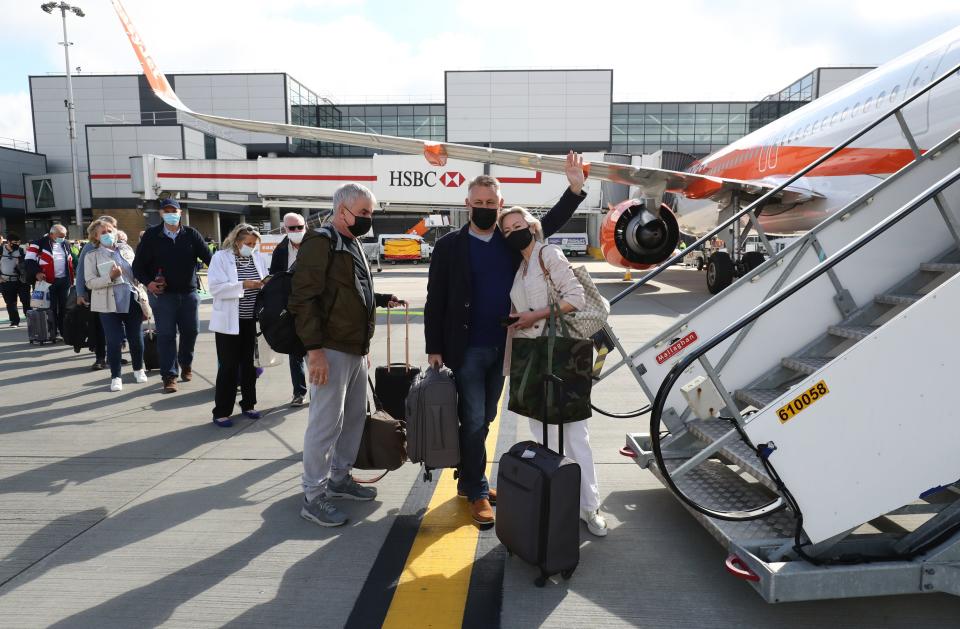Insurance confusion will cost billions as summer holidays take off

Confusion over travel insurance could leave travellers at risk of another summer out of pocket, as foreign fliers and staycationers alike attempt to navigate hidden gaps in their cover and policies fail to offer clarity on Covid.
A lack of clarity from insurers over how much protection their policies offer for Covid-related disruption could lead to consumers losing money as international travel reopens, consumer group Which? has found.
By Easter, three in 10 people had already booked international travel – weeks before any restrictions easing had been confirmed.
This week, as the first leisure travellers took off, Ryanair was reporting weekly bookings had tripled, from half a million in early April to 1.5 million.
But thousands of travel insurance customers are being left with a false impression about the level of protection they would benefit from if the pandemic affected their holiday plans.
Which? believes this is partly down to poor communication by some insurance providers and the use of often confusing, blanket terms such as “Covid cover” or “enhanced Covid cover” on insurers’ websites.
As a result, half of those with cover believed that they would be covered should the government’s travel advice change after a trip was booked, and nearly half thought their policy would cover them if local or national lockdowns prevented them from travelling. Almost half (46 per cent) believed their policy would cover them if their airline or holiday company postponed their travel but would not offer a cash refund.
However, when Which? analysed 73 travel insurance providers at the end of last year, cover for those three such eventualities – particularly when government travel advice changes – was very rare, with large discrepancies between what policies included. It reports few changes since then.
Since March last year, most insurers have considered the pandemic a “known event”, and excluded Foreign Office cancellation cover from new policies and for newly booked trips.
However, customers with policies bought after then were more likely to believe they were covered for this type of disruption than ones that had bought policies before then.
Two-thirds of respondents that had bought travel insurance in the six months before the survey believed they would be covered if Foreign Office travel advice changed to advise against travel after they had booked their trip, whereas less than half of respondents who bought policies over a year ago did.
While some insurers give upfront information about how extensively they protect against Covid-related disruption on their webpages and in their FAQs, some providers state only key benefits that their enhanced Covid cover provides, and are less clear about what is excluded. Other providers describe their policies as covering “a range” of Covid-related scenarios, and direct prospective customers to the FAQs for further detail.
“The ongoing threat of Covid-related disruption means that getting the right travel insurance for your holiday is more important than ever,” says Jenny Ross, Which? money editor.
“Without closer scrutiny from government and regulators of how clearly insurers present their policies, there is a very real chance that many travellers will be left out of pocket yet again this summer.”
Elsewhere, data from financial research firm Defaqto has found that, when it comes to an individual’s circumstances, one in five insurance policies does not cover cancellation costs for a positive Covid test.
Only a third cover cancellation costs if the policyholder has to isolate, and one in 20 policies has no cover for Covid-related medical expenses.
Submitting evidence to the Department for Transport before this week’s publication of a Covid passenger charter, which passengers outlines people’s rights and responsibilities when travelling, Which? and other campaign groups called for travel insurance providers to be clear about Covid-cover terminology.
Providers should present what is included and excluded in their Covid policies clearly on their websites, and not bury exclusions in their FAQs, they argue. The Financial Conduct Authority has also been urged to issue guidance to providers on the use of blanket terms such as “Covid cover” and “enhanced Covid cover”, which often overlook what kind of cover is not included – without qualifying them clearly.
This all assumes we take out cover in the first place, though.
With 22 million people gearing up for staycations worth £14.6bn, only a minority will arrange travel insurance for their domestic trip – a trend that has been rife for years.
Nearly one in five of those without insurance are not even aware that they should have it to cover domestic breaks, Virgin Money suggests, despite spending £660 on average per UK holiday.
Fewer than one in three people would take out travel insurance for a UK break, compared with two-thirds who cover themselves when travelling overseas.
Reasons include relying on the NHS for any medical emergencies – but that does not account for losses, thefts or even non-emergency illness or other events preventing travel – and not considering a staycation a holiday.
One in six people never buys travel insurance at all, the research found.
Read More
The new financial tools supporting those hit hardest by Covid
Covid repayment holidays lock one in 10 out of a new mortgage

 Yahoo Finance
Yahoo Finance 